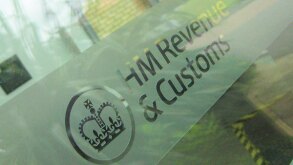Following the removal of COVID-related restrictions, China policymakers have returned to an emphasis on economic recovery and growth, setting a target GDP growth rate of 5% for 2023. Given that innovation and small businesses are key drivers for the Chinese economy, several measures have been set out to boost their development.
R&D super deduction rules enhanced
The existing corporate income tax (CIT) super deduction for R&D expenses provides for a baseline 175% deduction, in other words, a 75% bonus or super deduction. This applied at a higher 200% rate for certain manufacturing businesses and small and medium-sized high-tech enterprises. As a special temporary measure, the 200% rate had also been applied to other enterprises for the fourth quarter of 2022. Now the authorities have gone further and set this 200% rate as the standard rate, for most enterprises, on a permanent basis. This still excludes enterprises in tobacco manufacturing, accommodation and catering, wholesale and retail, real estate, leasing, and entertainment. This is contained in the Ministry of Finance (MOF) and the State Taxation Administration (STA) Circular No. 7), issued on March 26 2023, and effective from January 2023.
It should be noted that the existing super deduction limitation for payments made to overseas R&D contractors will remain unchanged. That is, only 80% of the sub-contracted R&D expenses are entitled to the R&D super deduction. This is coupled with a requirement that foreign outsourcing expenses must not exceed two-thirds of the eligible R&D expenses incurred domestically in China.
At the same time, the Chinese tax authorities have also been strengthening follow-up inspections on usage of the incentive. Businesses are recommended to enhance internal controls over the conduct of R&D activities and associated documentation.
Income tax reductions for small businesses and sole proprietors extended
Also on March 26 2023 the MOF and STA announced, in Circulars No. 5 and No. 6, an extension to the end of 2024 of income tax reductions for small enterprises and sole proprietors. These policies were due to expire on December 31 2022.
Small enterprises, with profits up to RMB 3 million ($430,000), will enjoy an effective CIT rate of 5% up to the end of 2024. This is arrived at by applying a CIT rate of 20% to a tax base calculated as 25% of profits. It might be noted that in 2021 and 2022 an even lower rate (2.5%) was applied to the first RMB 1 million of profits. While this has now lapsed, the 5% rate is still much lower than the standard rate of 25%.
Sole proprietors with taxable business income less than RMB 1 million can continue to enjoy a 50% reduction of individual income tax (IIT) rate until the end of 2024. This is on top of the existing incentives provided to them. As the extension was announced in March with retroactive effect from January 2023, overpaid tax can be recovered in two ways. This is either:
Through offsetting against future monthly IIT liabilities, with a refund of the remainder (if any) at the time of annual IIT filing; or
Through direct refund.
It should be noted that such incentives are coming hand in hand with greater tax scrutiny on certain sectors, such as entertainment and live streaming.












